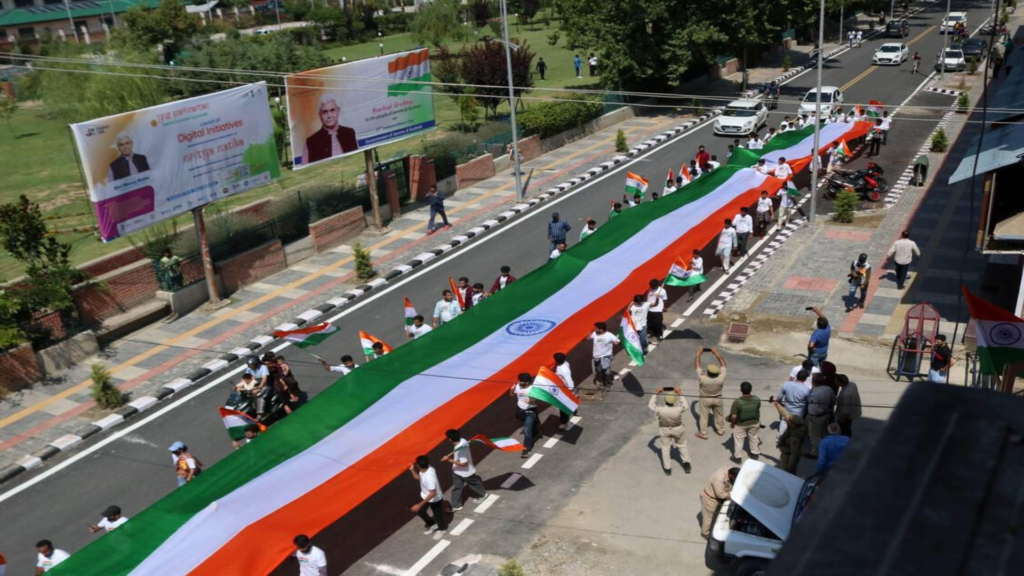
Of Grand Rallies and Longest Flags in Kashmir
Samreen Khanday
In the grand tradition of “freedom,” there’s something particularly heartwarming about students and teachers rallying under the watchful gaze of armed forces. It’s a celebration of independence that, oddly enough, requires a military escort—because nothing says “liberty” quite like being forced to wave the flag of your occupier.
This year, the mighty Indian military and police in Jammu and Kashmir outdid themselves. They decreed that every government school, teacher, and student should enthusiastically organize large rallies and hoist the Indian tricolor in a show of “patriotism” besides uploading WhatsApp statuses and send screenshots as proof to police officers. Never mind that these festivities were mandated under the gentle encouragement of threats—er, guidance—by the occupying forces. Who needs genuine sentiment when you have a battalion on hand?
Take a moment to appreciate the irony: the residents of an occupied territory celebrating the independence of their occupiers. It’s a bit like asking the foxes to organize a party in honor of the hens’ liberation day—right before they get back to raiding the coop. The occupied waving the occupier’s flag; it’s the kind of poetic justice that really puts the “force” in “reinforcement.”
One could draw inspiration from history. Consider the Soviet Union’s warm tradition of ensuring that its satellite states “enthusiastically” celebrated Soviet holidays. The citizens of East Germany, Hungary, and Poland could surely sympathize with the Kashmiris—marching in parades, waving flags, and mouthing patriotic slogans they were taught at gunpoint. And just like the Soviets, the Indian authorities in Kashmir seem to believe that true love for a nation can be cultivated with a combination of coercion, surveillance, and a few armored vehicles.
Let’s not forget the teachers, those noble educators who traded chalk for a crash course in nationalism. Imagine the enthusiasm they must have felt, knowing that their careers—and perhaps a bit more—depended on how well they orchestrated these shows of loyalty. And the students, well, they learned an invaluable lesson in civics: that participation is less about choice and more about survival. You know, a life skill that’s definitely transferable to the real world.
But here’s the thing about power—especially power that’s built on fear and compulsion: it has an expiry date. Empires rise and fall, and those who rule by the sword often forget that the blade eventually dulls. Forcing allegiance may win you a parade or two, but it doesn’t win hearts. History has a funny way of reminding occupiers that true loyalty cannot be extracted under duress, no matter how many flags you force someone to wave.
So here’s to the spectacle of occupied independence, to the rallies of coerced celebration. May they serve as a reminder that while you can march a people to the beat of your drum, you can’t make them dance to it forever. Because the flags might be hoisted high, but when they’re put away, the only thing left fluttering in the wind is the inevitable tide of change.



